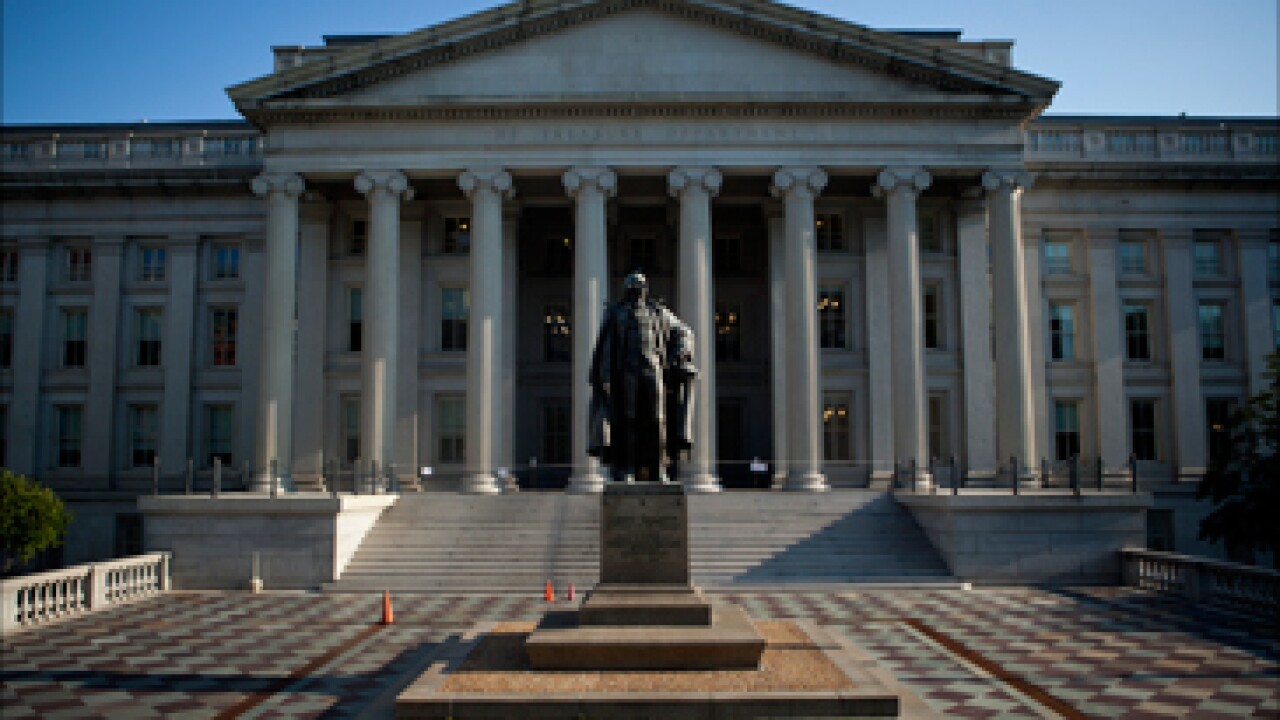Experiencing a sea change in their core check-printing businesses, Deluxe Corp. and John H. Harland Co. last week reported that earnings were flat in 1994.
Deluxe, based in St. Paul, Minn., and Atlanta-based Harland are two of the largest printers of check stock for banks in the United States. While both firms saw revenue gains and were solidly profitable in 1994, earnings were essentially unchanged from 1993.
Deluxe officials said 1994 net income reached $140.9 million, compared with 141.9 million in 1993. Revenues totaled $1.75 billion, up 10.5% from 1993.
For the fourth quarter of 1994, the firm reported $478.9 million in sales, up 8.6% from the year-earlier period. But Deluxe's $40 million in net income for the quarter was below analysts' forecasts and was down 21.3% from the last three months of 1993, officials said.
At John Harland, sales were $521.3 million in 1994, up slightly from $519.5 million in 1993. Net income was $51.2 million, compared with $52.5 million. Earnings per share did rise 6 cents from 1993 however, to $1.68, because the company had two million fewer outstanding shares at the end of last year.
Wall Street analysts said the lack of earnings in 1994 was primarily due to a consolidating market for check printing.
Chuck McDonald, an analyst with William Blair & Co. in Chicago, said the two companies' margins have been hurt by the continuing wave of bank mergers. "As big banks buy smaller ones, they demand bigger discounts from check printers like Harland and Deluxe," he said. "Both of these companies know there are no easy outs, and these are long-term changes taking place."
Harold V. Haverty, Deluxe's chairman and chief executive, agreed with Mr. McDonald's assessment. "Although orders were up, Deluxe's financial institution check printing declined 4.7% in 1994," he said. "This decline was expected, and it reflects overall market maturity, continued pricing pressures, and growth from the direct-mail check segment within the industry."
Mr. McDonald said that last year both Harland and Deluxe consolidated their check printing facilities across the country in order to squeeze out more profits.
For example, Harland's financial services division, which contains the company's core check printing operations, increased its operating profit more than 9% in 1994 despite shrinking revenues, company executives said.
"Through our cost-reduction efforts and implementation of process improvements, we created significantly higher margins, generating higher earnings on lower revenue," said Robert R. Woodson, Harland's chairman, president, and chief executive officer. "Our pricing strategy continues to focus on profitability, sometimes at the expense of increasing market share."
Both firms have also employed a strategy of further diversifying into information-technology-based businesses. Mr. Haverty said that for the first time in Deluxe's history, revenues from newer businesses exceeded those from financial institution check sales.
"The recent acquisitions of a collection services company, a direct banking software company, and a credit card processing company . . . make Deluxe a more complete payment services source for financial institutions and retailers," he said.





